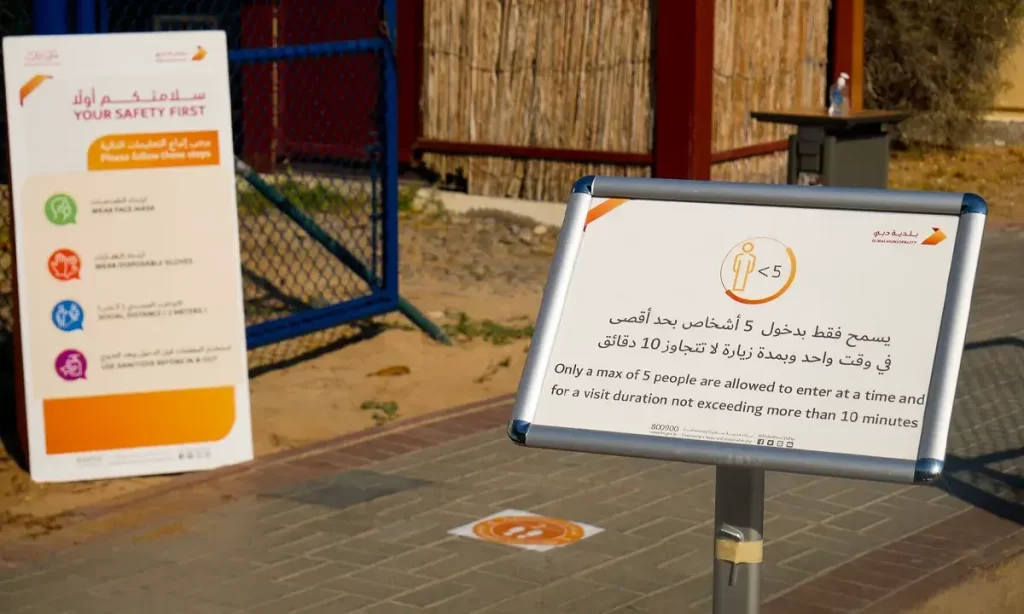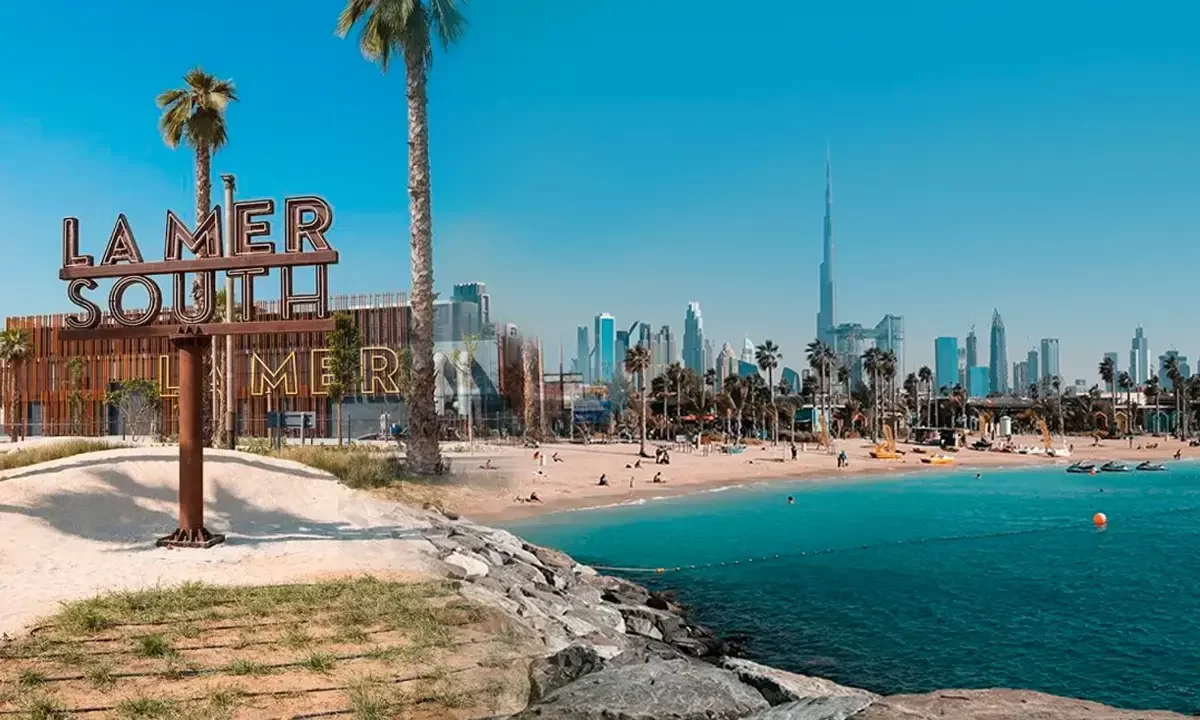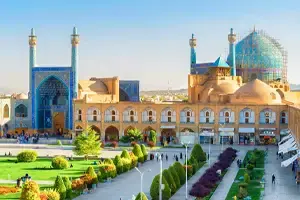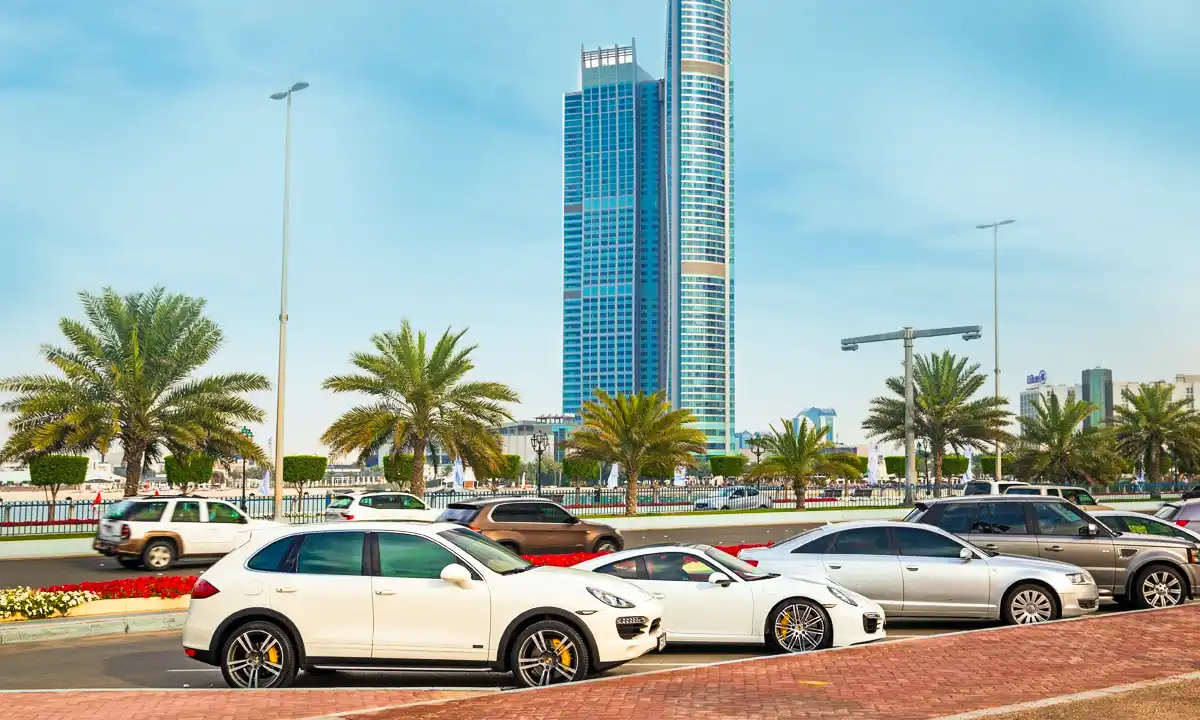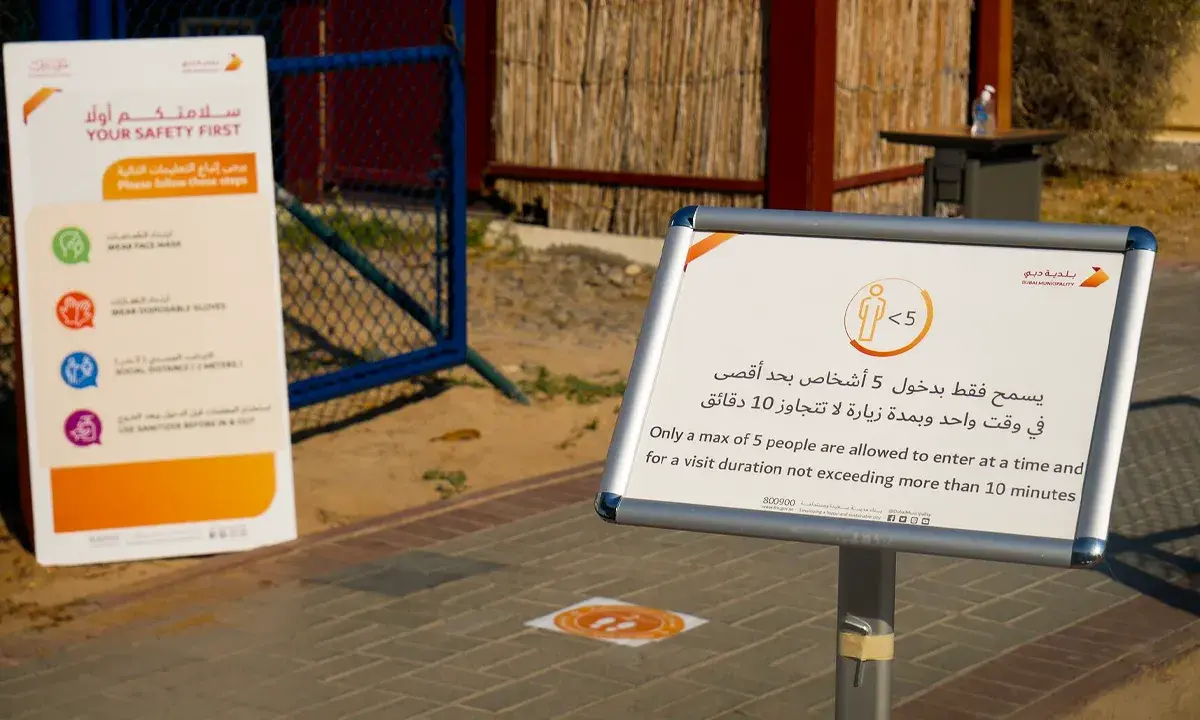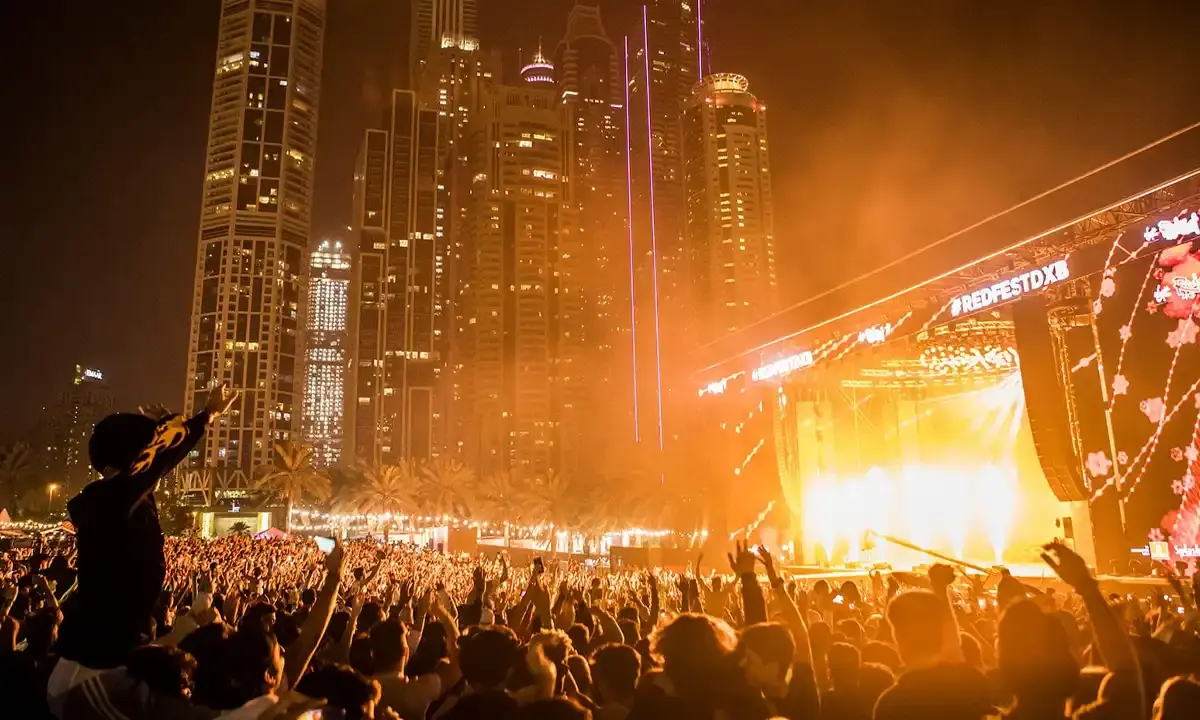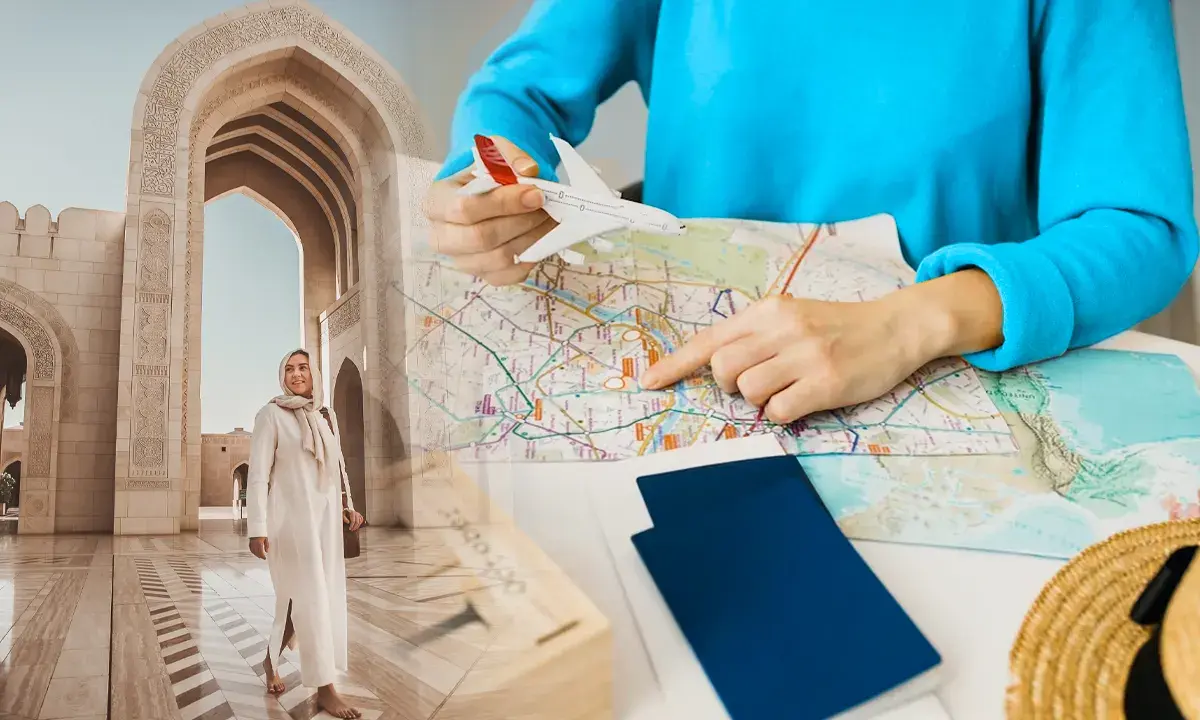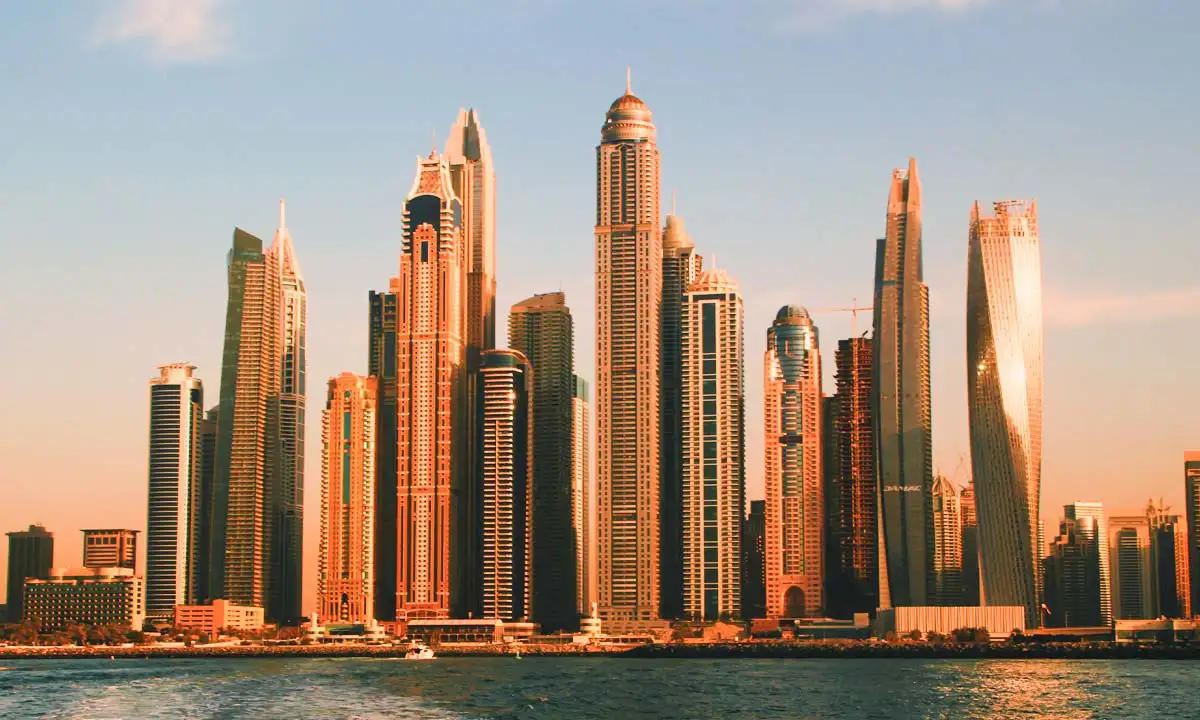Discover essential guidelines for tourists in Dubai with our comprehensive overview. Learn about cultural norms, legal restrictions, and prohibited activities to ensure a friendly visit. This article provides vital information on what is not allowed in Dubai, from dress codes and public behavior to legal and cultural no-gos, helping you to enjoy your trip while honoring local customs and laws. Now, let’s check what is not allowed in Dubai as a tourist:
- Public displays of affection (PDA)
- Public consumption of alcohol
- Drug possession or use
- Swearing or using offensive language
- Taking pictures of restricted areas
- Gambling
- Disrespecting Religious Beliefs
- Violating Traffic Laws
- Overstaying Your Visa
- Working without a Work Permi
Table of Contents
Public Displays of Affection
Public displays of affection (PDA) are a sensitive matter in Dubai and the wider United Arab Emirates (UAE), due to the country’s conservative Islamic cultural norms. Here’s a closer look at what this means for tourists and residents:
Cultural Background:
Dubai, although modern and cosmopolitan in many ways, still adheres to Islamic laws and traditions. These traditions generally promote modesty and discretion in personal behavior, especially in public.
What Constitutes PDA:
In Dubai, public displays of affection include actions such as kissing, hugging, and holding hands. These are particularly scrutinized between unmarried or non-related couples. While holding hands for married couples is generally tolerated, more overt displays, like kissing or hugging, are considered inappropriate.
Legal Implications:
Engaging in public displays of affection can have legal consequences in Dubai. There have been instances where tourists or expatriates have faced legal action, including arrest, fines, or even deportation, for engaging in PDA. The laws are applied to everyone, regardless of nationality or cultural background.
Tourist Awareness:
Tourists are often advised to be particularly cautious with their behavior in public. What might be considered acceptable or minor in other countries can be taken seriously in Dubai.
Places to Be Cautious:
While discretion should be exercised everywhere in public, it’s especially important in more traditional areas, near mosques, and in family-oriented spaces like shopping malls, parks, and beaches.
Cultural Respect:
Observing these norms is seen as a matter of respecting the local culture and traditions. Many tourists visit Dubai without any issues by being mindful of these aspects.
Changing Norms:
While the traditional stance on PDAs in Dubai is quite strict, it’s important to note that Dubai is increasingly accommodating a diverse, international population. This means that some norms are slowly evolving, though legal statutes remain in place.
Alcohol Consumption in Public Areas
Alcohol consumption in public areas in Dubai is subject to strict regulations, reflecting the city’s adherence to Islamic laws and customs. Understanding these regulations is important for tourists and expatriates to avoid legal issues. Here’s an overview:
Licensing for Alcohol Consumption:
In Dubai, alcohol can only be legally consumed in licensed venues such as hotels, bars, and private clubs. These establishments are typically associated with international hotels or resorts and are permitted to serve alcoholic beverages to their patrons.
No Public Drinking:
Drinking alcohol in public places outside of these licensed venues, including public streets, parks, and beaches, is strictly prohibited. This prohibition extends to carrying open bottles or containers with alcohol in public areas.
Legal Purchase and Consumption:
Residents of Dubai can obtain a liquor license that allows them to purchase alcohol from licensed stores for private consumption at home. However, this is generally not applicable to tourists.
Public Intoxication:
Public intoxication is a serious offense in Dubai. Even if you consume alcohol within a licensed venue, it is important to ensure that you do not appear intoxicated in public. Displaying signs of drunkenness can lead to arrest, fines, or more severe legal consequences.
Zero Tolerance for Drunk Driving:
Dubai has a zero-tolerance policy for driving under the influence of alcohol. The legal blood alcohol limit is 0.0%. Offenders can face heavy fines, imprisonment, and even deportation.
Age Restrictions:
The legal drinking age in Dubai is 21. It is illegal to sell alcohol to anyone under this age, and underage drinking is strictly dealt with.
Cultural Sensitivity:
While alcohol is available, it’s important to be sensitive to local culture and traditions. Public discussions about alcohol consumption should be approached with discretion.
During Religious Observances:
During certain religious periods, particularly the holy month of Ramadan, there are further restrictions on the sale and consumption of alcohol. During this time, alcohol service hours may be limited, and eating, drinking, and smoking in public during daylight hours are prohibited for all, including non-Muslims.
Penalties for Violation:
Violating alcohol laws in Dubai can result in severe penalties, including hefty fines, imprisonment, and deportation. The laws are strictly enforced, and ignorance of the law is not considered an excuse.
Drug Possession or Use
Drug possession or use in Dubai, as in the rest of the United Arab Emirates (UAE), is treated with extreme seriousness due to the country’s strict anti-drug laws. These laws reflect the UAE’s conservative cultural values and stringent stance on narcotics. Here’s an overview of the situation:
Zero Tolerance Policy:
The UAE has a zero-tolerance policy towards illegal drugs. This means any amount of illicit drugs found in your possession is considered a serious crime. The laws are stringent, and the penalties are severe.
Strict Penalties for Possession:
Drug possession, even in small quantities, can lead to heavy fines, lengthy prison sentences, and even the death penalty in extreme cases. The UAE’s drug laws do not differentiate between a small amount for personal use and larger amounts for distribution.
Use of Prescription Drugs:
Some prescription drugs that are legal in other countries are classified as controlled substances in the UAE. Travelers carrying prescription medication should carry a doctor’s prescription and ensure that their medication is not on the UAE’s list of banned substances. It’s advisable to check with the UAE embassy or consulate before traveling.
Drug Testing:
The UAE authorities can conduct random drug testing. Testing positive for drugs can result in arrest and prosecution, even if the drugs were consumed outside the country. Trace amounts found in the bloodstream are considered possession.
Traveler Vigilance:
Travelers should be extremely cautious with their luggage and personal belongings to avoid inadvertently carrying banned substances. They should also be wary of accepting packages or substances from others that could contain drugs.
Legal Proceedings:
Legal proceedings in drug-related cases can be lengthy and complex. Defendants may face challenges due to language barriers and differences in legal practices. Access to legal representation is crucial.
Cultural Sensitivity:
Understanding and respecting the UAE’s strict stance on drugs is crucial. This includes avoiding discussions that may be construed as condoning drug use.
Airport Security and Customs:
The UAE employs rigorous security measures at airports and points of entry, including advanced scanning equipment and thorough inspections.
Impact on Expatriates and Tourists:
Expatriates and tourists are subject to the same drug laws as locals. There have been numerous cases of foreigners facing severe penalties for drug-related offenses.
Swearing or Offensive Language
Using swearing or offensive language in Dubai, and the UAE in general is taken very seriously and can lead to significant legal consequences. This stance reflects the region’s cultural emphasis on respect and decorum in both public and private interactions. Here are some key points to consider:
Legal Implications:
Swearing, rude gestures, and any form of offensive language are not only culturally frowned upon but can also have legal ramifications. This includes face-to-face interactions, as well as online communication and social media.
Cultural Sensitivity:
The UAE culture places a high value on politeness and respectfulness in communication. What might be considered casual or inconsequential language in other cultures can be seen as deeply disrespectful in the UAE.
Public and Private Spaces:
The laws against offensive language apply in both public and private settings. Tourists and expatriates have faced legal action for comments made in public places, in private gatherings, and even for messages sent through private digital communication.
Online Communication:
The UAE has strict cybercrime laws. Posting or sharing content that is considered offensive, defamatory, or blasphemous can lead to fines, imprisonment, and deportation. This includes content on social media platforms, blogs, and online forums.
Workplace Conduct:
In professional settings, the use of offensive language can lead to workplace disciplinary actions and can also have legal consequences.
Language in Disputes:
Tourists and residents should be particularly cautious during any disagreements or conflicts. Even in heated moments, maintaining respectful language is important to avoid legal issues.
Respecting Local Norms:
Adhering to the local norms of communication is a sign of respect for the culture and traditions of the UAE. It’s recommended to use polite and formal language, especially with individuals you are not familiar with.
Legal Process:
Those accused of using offensive language may face arrest and legal proceedings, which can be a lengthy and complex process, particularly for foreigners who might not be familiar with the legal system or the local language.
Awareness and Caution:
Visitors to Dubai should be aware of these laws and exercise caution in their verbal and written communications. Avoiding slang, jokes, or comments that could be misinterpreted is advisable.
Photography of Restricted Areas
By following these guidelines, you can ensure that your photography experience in Dubai is enjoyable and respectful of the local laws and customs.
Military Installations:
Photography of military installations, such as airports, military bases, and border checkpoints, is strictly prohibited. These areas are considered sensitive and are off-limits to unauthorized photography.
Government Buildings:
Taking pictures of government buildings, including ministries, courts, and police stations, is generally discouraged. While not explicitly prohibited, it’s advisable to avoid taking photos of these buildings without prior permission.
No-Photography Zones:
Some specific areas, such as tunnels, bridges, and other strategic locations, may have designated “no-photography zones.” Signs are usually posted in these areas to indicate the photography prohibition.
General Discretion:
Even in public areas where photography is generally allowed, it’s important to exercise discretion and avoid taking photos of people without their consent. It’s also advisable to refrain from taking photos that could be considered intrusive or disrespectful.
Obtaining Permission:
If you wish to take photos of certain restricted areas, it’s always best to seek permission from the relevant authorities. This may involve obtaining a permit or coordinating with the appropriate personnel.
Respecting Local Customs:
Remember that Dubai is a conservative Muslim-majority country, and it’s important to respect local customs and traditions. This includes avoiding taking photos of people without their consent, especially women and religious figures.
Avoid Misinterpretation:
Be mindful of how your photos may be interpreted. Avoid taking photos that could be seen as sexually suggestive, offensive, or disrespectful to the local culture.
Seeking Guidance:
If you have any doubts or concerns about photography restrictions, it’s always advisable to seek guidance from hotel staff, tour guides, or local authorities. They can provide specific information about the areas where photography is permitted or prohibited.
Gambling in Dubai
Gambling is strictly prohibited in Dubai, and any form of gambling activity, including online gambling, is punishable by law. This includes casinos, betting shops, lottery tickets, and online gambling sites. The penalties for gambling in Dubai are severe and can include fines, imprisonment, and deportation.
Why is Gambling Illegal in Dubai?
Gambling is illegal in Dubai for several reasons:
- Religious Beliefs: Islam, the predominant religion in Dubai, prohibits gambling. The Quran, the holy book of Islam, forbids gambling and considers it a sin.
- Social Values: Dubai is a conservative society with strong social values that emphasize family, community, and personal responsibility. Gambling is seen as a harmful activity that can lead to financial ruin, addiction, and social problems.
- Legal Framework: Dubai has a strict legal system that prohibits gambling. The Gambling Law of 2002 clearly states that all forms of gambling are illegal, and offenders can face severe penalties.
Penalties for Gambling in Dubai
The penalties for gambling in Dubai are as follows:
- First Offense: A fine of AED 20,000 (USD 5,400) and/or imprisonment for up to six months.
- Subsequent Offenses: A fine of AED 50,000 (USD 13,500) and/or imprisonment for up to one year.
- Forfeiture of Gambling Winnings: All gambling winnings will be confiscated by the authorities.
- Deportation: In some cases, offenders may be deported from Dubai.
Tips for Avoiding Gambling in Dubai
To avoid gambling in Dubai, it’s important to be aware of the law and to refrain from any gambling activities. Here are some tips:
- Be Informed: Familiarize yourself with the Gambling Law of 2002 and the penalties for gambling in Dubai.
- Avoid Temptation: Do not enter casinos, betting shops, or any other premises where gambling activities are taking place.
- Use Caution with Online Gambling: Be aware that online gambling is illegal in Dubai, and accessing gambling sites can result in legal action.
- Seek Help if Needed: If you have a gambling problem, there are resources available to help you. The Dubai Foundation for Women and Children provides counseling and support for gambling addicts.
By following these tips, you can ensure that you comply with the laws of Dubai and avoid any potential legal trouble.
Disrespecting Religious Beliefs
Disrespecting religious beliefs in Dubai is a serious offense that can result in imprisonment or deportation. The UAE is a Muslim-majority country and Islam is the official religion. The government is committed to protecting religious freedom, but it also expects visitors and residents to respect local customs and traditions.
Here are some specific examples of what could be considered disrespectful to religious beliefs in Dubai:
Negatively discussing religion
This includes making derogatory remarks about Islam or other religions or engaging in debates about religion that are likely to offend others.
Dress code
When visiting religious sites, it is important to dress modestly. This means covering your shoulders, knees, and chest. It is also advisable to avoid wearing tight-fitting or revealing clothing.
Public displays of affection
Public displays of affection, such as kissing or hugging, are considered offensive in Dubai. This is true even between married couples.
Eating and drinking in public during Ramadan
Ramadan is the Islamic holy month of fasting. During this time, Muslims are expected to abstain from food and drink from sunrise to sunset. Eating or drinking in public during Ramadan is considered disrespectful to Muslims who are fasting.
If you are unsure of whether something is considered disrespectful to religious beliefs in Dubai, it is always best to err on the side of caution. It is also a good idea to research the local customs and traditions before you travel.
Here are some additional tips for respecting religious beliefs in Dubai:
- Be aware of your surroundings. If you are in a religious area, be mindful of your behavior and dress.
- Be respectful of others. Avoid making offensive or insensitive comments about religion.
- Be open to learning about other cultures. Dubai is a melting pot of cultures, and it is important to be open to learning about different beliefs and customs.
Violating Traffic Laws
Traffic laws in Dubai are strictly enforced and violating them can result in heavy fines, imprisonment, or even deportation. Here are some of the most common traffic violations and their penalties:
- Running a red light: This is one of the most serious traffic violations in Dubai and can result in a fine of up to AED 2,000 and 6 black points on your driving license. If you are caught running a red light more than once, your license will be suspended for some time.
- Speeding: Speed limits in Dubai are strictly enforced and there are cameras everywhere. If you are caught speeding, you will be fined AED 200 for every 10 kilometers per hour you are over the speed limit. If you are caught speeding more than once, your license will be suspended for some time.
- Using a mobile phone while driving: Using a mobile phone while driving is illegal in Dubai and can result in a fine of up to AED 2,000 and 4 black points on your driving license.
- Driving under the influence of alcohol or drugs: Driving under the influence of alcohol or drugs is also illegal in Dubai and can result in a fine of up to AED 20,000 and imprisonment for up to 1 year. If you are caught driving under the influence more than once, you will be deported from the country.
- Not wearing a seatbelt: Wearing a seatbelt is compulsory in Dubai and failure to do so can result in a fine of AED 400.
- Overtaking on the right: Overtaking on the right is illegal in Dubai and can result in a fine of AED 200.
- Illegal parking: Illegal parking is a serious offense in Dubai and can result in a fine of up to AED 1,000. If you are caught parking illegally more than once, your car may be towed away.
- Dipping headlights: It is illegal to dip your headlights in Dubai unless you are overtaking another vehicle. If you are caught dipping your headlights unnecessarily, you will be fined AED 200.
- Using high beams in residential areas: It is illegal to use high beams in residential areas in Dubai. If you are caught using high beams in a residential area, you will be fined AED 200.
- Using sirens or flashing lights without authorization: It is illegal to use sirens or flashing lights on your car unless you have been authorized to do so by the authorities. If you are caught using sirens or flashing lights without authorization, you will be fined AED 200.
- Making illegal U-turns: It is illegal to make U-turns at certain junctions in Dubai. If you are caught making an illegal U-turn, you will be fined AED 200.
- Using a vehicle without a valid registration certificate: It is illegal to use a vehicle in Dubai without a valid registration certificate. If you are caught driving a vehicle without a valid registration certificate, you will be fined AED 200 and your car may be impounded.
- Using a vehicle with a faulty speedometer: It is illegal to use a vehicle in Dubai with a faulty speedometer. If you are caught driving a vehicle with a faulty speedometer, you will be fined AED 400.
- Using tinted windows that are too dark: It is illegal to use tinted windows that are too dark in Dubai. If your windows are too dark, you will be fined AED 200 and your windows may be tinted to the legal level.
Overstaying Your Visa
If you overstay your visa by more than 60 days, you may be deported from the UAE. This means that you will be forced to leave the country and you may be banned from entering the UAE for some time. The length of the ban depends on the duration of the overstay. Individuals who overstay for more than 180 days may face a one-year ban, while those who overstay for over a year may receive a two-year ban.
Travel Ban for Overstaying Visas in Dubai
If you are deported from the UAE for overstaying your visa, you may be placed on a travel ban. This means that you will be prohibited from entering the UAE for a certain period, even if you have a valid visa. The length of the travel ban depends on the severity of your overstay and the number of times you have overstayed in the past.
In addition to these penalties, overstaying your visa can also make it difficult to obtain future visas in the UAE. This is because the UAE immigration authorities will see that you have a history of overstaying visas and may be less likely to grant you a visa in the future.
How to Avoid Overstaying Your Visa in Dubai?
To avoid overstaying your visa in Dubai, there are a few things you can do:
- Be aware of your visa expiry date. Make sure you know when your visa expires and plan your departure accordingly.
- Don’t leave things to the last minute. Don’t wait until the last minute to renew your visa. If you need to apply for a new visa, do it well in advance of your current visa expiring.
- Keep your passport with you at all times. This will make it easier to prove your visa status to immigration officials.
- If you are unable to leave the UAE before your visa expires, you should contact the General Directorate of Residency and Foreign Affairs (GDRFA) as soon as possible. They may be able to grant you a grace period to allow you to leave the country.
Overstaying your visa in Dubai is a serious offense that can have severe consequences. By following the tips above, you can avoid overstaying your visa and any of the associated penalties.
Working without a Work Permit
Working without a work permit in Dubai is illegal and can have severe consequences for both the employee and the employer. The Dubai government has strict regulations regarding foreign employment, and anyone found working without a valid work permit is subject to penalties.
Consequences for Employees
If you are an employee working without a work permit in Dubai, you could face the following penalties:
- Imprisonment: You could be imprisoned for up to one month and fined up to AED 10,000 (approximately $2,722).
- Labor ban: You could be blacklisted by the Ministry of Human Resources and Emiratisation (MoHRE) for up to three years, which would prevent you from working legally in the UAE during that time.
- Deportation: You could be deported from the UAE and barred from re-entry for up to three years.
In addition to these penalties, you may also be denied access to basic services such as healthcare and education.
Consequences for Employers
Employers who hire employees without work permits are also subject to severe penalties. These include:
- Fines: The company could be fined up to AED 50,000 (approximately $13,613) for each employee found working without a work permit.
- Suspension of work permit issuance: The company could be suspended from issuing new work permits for a period of up to six months.
- Criminal prosecution: In serious cases, the company’s management could be prosecuted for labor law violations.
Why It Is Illegal to Work Without a Work Permit?
The UAE government has several reasons for making it illegal to work without a work permit. These include:
- Protecting the rights of foreign workers: Work permits ensure that foreign workers have access to basic rights such as minimum wage, overtime pay, and sick leave.
- Ensuring fair competition: Work permits help to level the playing field for businesses, as all employers must comply with the same labor laws.
- Reducing the risk of exploitation: Work permits help to identify and prevent cases of labor exploitation, such as unpaid wages and illegal working conditions.
How to Obtain a Work Permit?
If you are planning to work in Dubai, you must obtain a valid work permit from the MoHRE. The permit process typically involves the following steps:
- Submit an application form: You must submit an application form to the MoHRE, along with supporting documentation such as your passport, education certificate, and medical certificate.
- Obtain a job offer: You must obtain a valid job offer from a registered UAE company. The job offer must specify your salary, working hours, and other employment terms.
- Pass an employment medical examination: You must pass an employment medical examination to ensure that you are fit to work in the UAE.
- Pay the work permit fees: You must pay the applicable work permit fees, which are currently AED 200 for the first year and AED 100 for subsequent years.
Working without a work permit in Dubai is a serious offense that can have significant consequences. It is important to understand the law and follow the correct procedures to obtain a valid work permit before starting any employment in Dubai.
Last word
In conclusion, as a tourist in Dubai, it is crucial to respect the local laws and customs that are notably different from those in many Western countries. Activities not allowed include public displays of affection, drinking alcohol in unauthorized areas, dressing inappropriately, using offensive language or gestures, and taking photographs of people without permission. Additionally, cohabitation without marriage, sharing a hotel room with someone of the opposite sex to whom you are not married or closely related, and all forms of narcotics are strictly prohibited. It’s essential for visitors to stay informed about these regulations to ensure a respectful and trouble-free visit to this culturally rich and vibrant city. Remember, while Dubai is modern and welcoming to tourists, it still upholds its traditional values and legal frameworks strictly.
Tourists are expected to dress modestly, especially in public areas. Clothing should cover shoulders and knees, particularly in malls, markets, and public streets. Beachwear is acceptable only on beaches or at pools.
Tourists can consume alcohol in licensed venues like hotels, bars, and private clubs. However, drinking in public places or being publicly intoxicated is strictly prohibited and can lead to legal issues.
Public displays of affection should be minimal. Holding hands is generally acceptable, but kissing and hugging in public are frowned upon and can attract legal attention.
When taking photographs, avoid capturing government buildings, military sites, and residents without their permission. Disrespecting these rules can lead to fines or detention.
